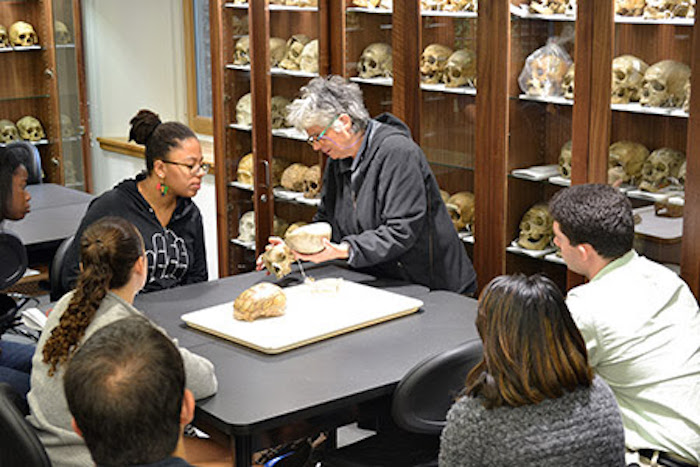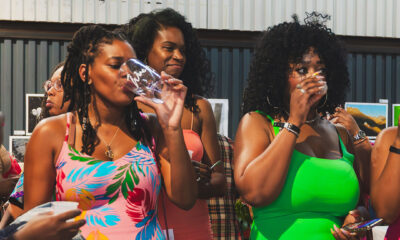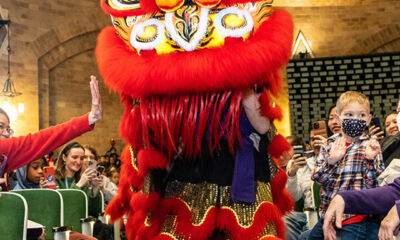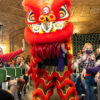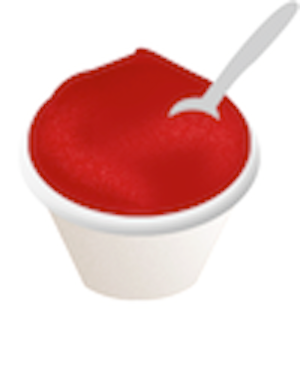Local Scoop
Penn Museum Presents: So You Wanna Be an Archaeologist?
A special day of archaeological site simulations, behind-the-scenes tours, a 3-D printing demonstration, plus Q&A sessions with researchers and conservators, awaits at the Penn Museum on Saturday, October 17, 11:00 am to 4:00 pm, in celebration of International Archaeology Day. The family-friendly program, So You Wanna Be an Archaeologist?, highlights the training and technology used by archaeologists, presented against a backdrop of mummies, ancient skeletons, clay tablets, and other artifacts from the museum’s renowned collection.
So You Wanna Be an Archaeologist?, cosponsored by the Philadelphia Society of the Archaeological Institute of America, is free with Museum admission ($15, general admission; $13, seniors [65+]; $10, children [6–17] and full-time students [with ID]; $2 ACCESS Card holders; free to children under 5, members, active U.S. Military, STAMP and PennCard holders).
BONES, BOTANY, CERAMICS, AND METAL—INSIDE CAAM: THE CENTER FOR THE ANALYSIS OF ARCHAEOLOGICAL MATERIALS
Guests can meet some of the expert instructors mentoring archaeology students through the Museum’s Center for the Analysis of Archaeological Materials (CAAM), a multi-million dollar set of teaching labs that opened in 2014. Behind-the-scenes CAAM tours depart every 15 minutes beginning at 1:00 pm (limited availability, by sign up).
- In the Ceramics lab, guests have an opportunity to examine thin slices of pottery under a polarizing light microscope, as Dr. Marie-Claude Boileau, Ceramics expert, explains which clues identify where pottery objects were crafted and traded.
- Archaeobotany Teaching Specialist Chantel White discusses how prehistoric humans prepared ancient plants for their daily meals, and how grapes were fermented into wine nearly 5,000 years ago.
- Skeletons of modern animals can be seen in the Zooarchaeology Lab, where Mainwaring Teaching Specialist Dr. Kate Moore leads guests in a skeletal analysis exercise to decipher ancient relationships between animals and humans.
- Archaeometallurgy Teaching Specialist Moritz Jansen explores how reflected light microscopy can be used to reconstruct ancient metalworking technologies.
- Physical Anthropology Curator Dr. Janet Monge shares how forensic anthropologists use the anatomy and microstructure of human bone as clues in restoring a skeleton’s “personhood.”
STORIES BEHIND THE DISCOVERIES
Record-keeping is essential for archaeologists, who document everything they find by means of notes, drawings, and photographs. Since 1887, the Penn Museum has sent more than 300 field expeditions around the world. A special Records of the Archaeologist session of the Museum’s weekly Unearthed in the Archives presentation showcases the many types of records created and acquired over the years, including glass plate negatives, fabulous watercolors, and even phonograph records, starting at 1:00 pm.
 Dr. C. Brian Rose, Ferry Curator-in-Charge of the Mediterranean Section, greets guests in a pop-up Q&A session at 2:00 pm. The 2015 recipient of the Archaeological Institute of America’s Gold Medal Award for Distinguished Archaeological Achievement, Dr. Rose has extensive field excavation and survey experience in Turkey at Aphrodisias, Troy, the Granicus River Valley and, currently, as Project Director for the Penn Museum’s long-term field project at Gordion. Especially renowned for its role as the home of King Midas, the site of Gordion was occupied for more than 4,000 years, and remains one of the most important archaeological sites of the Near East. Dr. Rose is curating the exclusive Penn Museum exhibition, The Golden Age of King Midas, featuring art and artifacts from Gordion, with the cooperation of the government of the Republic of Turkey. The exhibition opens February 2016.
Dr. C. Brian Rose, Ferry Curator-in-Charge of the Mediterranean Section, greets guests in a pop-up Q&A session at 2:00 pm. The 2015 recipient of the Archaeological Institute of America’s Gold Medal Award for Distinguished Archaeological Achievement, Dr. Rose has extensive field excavation and survey experience in Turkey at Aphrodisias, Troy, the Granicus River Valley and, currently, as Project Director for the Penn Museum’s long-term field project at Gordion. Especially renowned for its role as the home of King Midas, the site of Gordion was occupied for more than 4,000 years, and remains one of the most important archaeological sites of the Near East. Dr. Rose is curating the exclusive Penn Museum exhibition, The Golden Age of King Midas, featuring art and artifacts from Gordion, with the cooperation of the government of the Republic of Turkey. The exhibition opens February 2016.
Visitors are also welcome to watch Museum conservators work on mummies and more inside the In the Artifact Lab: Conserving Egyptian Mummies exhibition. The conservators answer guests’ questions from 12:30 – 1:00 pm and 3:30 – 4:00 pm.
GAMES AND MORE FUN FINDS THROUGHOUT THE DAY
The special day includes the Museum’s popular Mummy Makers Workshop, a science-rich experience that invites participants to assist in the process of mummification on a custom-made dummy mummy. Activities include brain removal, evisceration, desiccation, and the weighing of the heart ceremony. Guests can attend this workshop at 11:00 am or 1:00 pm.
At 12:00 pm and 3:00 pm, game show aficionados are invited to match wits and play “What in the World?”—an object-based game using artifacts from the Museum’s international collection. In the 1950s “What in the World?” was a popular weekly TV program, featuring a panel of experts who identified objects from the Penn Museum’s collections.
 The truly daring can test their skills in an Indiana Jones-style obstacle course, dodging a rolling boulder (make that a giant beach ball) or forging ahead through a snake pit and a tangle of spiderwebs. For those who would prefer a calmer field experience, a visit to an interactive dig site and a site survey simulation offer the opportunity to sift for artifacts like a true archaeologist.
The truly daring can test their skills in an Indiana Jones-style obstacle course, dodging a rolling boulder (make that a giant beach ball) or forging ahead through a snake pit and a tangle of spiderwebs. For those who would prefer a calmer field experience, a visit to an interactive dig site and a site survey simulation offer the opportunity to sift for artifacts like a true archaeologist.
The Philadelphia Society of the Archaeological Institute of America demonstrates how 3-D printing technology aids in the study of ancient objects, while Cartifact presenters throughout the galleries help to tell the stories behind the art and artifacts.
Everyone is invited to join a make-and-take craft station, where they can work together or alone to design tomb walls, inspired by the ancient Egyptians, perfect for the afterlife.
The Museum Shop joins in the fun with a wide assortment of archaeology books and games available for purchase. Children who stop by the Pepper Mill Café with their parents can enjoy kid-friendly menu options.
The Philadelphia Society of the Archaeological Institute of America, a cosponsor of the Penn Museum’s International Archaeology Day, promotes a vivid and informed public interest in the cultures and civilizations of the past, supports archaeological research, fosters the sound professional practice of archaeology, advocates the preservation of the world’s archaeological heritage, and represents the discipline in the wider world.
This year, Penn Museum is one of more than 100 collaborating organizations across the United States and Canada participating in International Archaeology Day with special activities to raise public awareness of archaeology locally and nationally.


